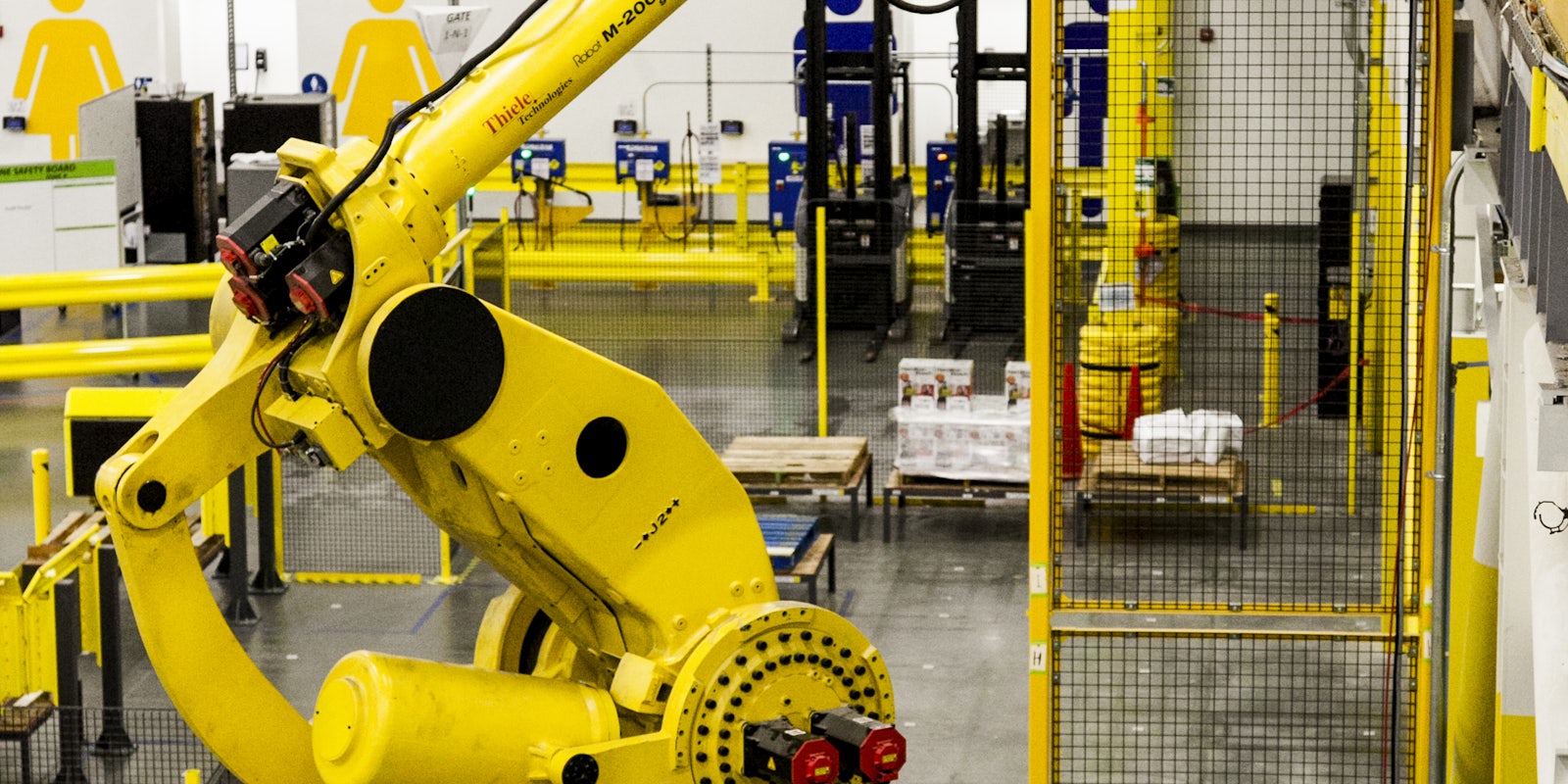There’s a problem brewing. Robotic machinery, automation, and AI are creeping in on human jobs. Insurance adjusters in Japan are already being replaced by IBM Watson intelligence; Tesla’s self-driving technology is moving from personal vehicles to semi-trucks; and Amazon is using robots in its factories and eliminating the need for checkout clerks in its prototype grocery store. A host of other currently human-performed jobs are at risk of being manned by machines, too.
Luckily, Microsoft co-founder, billionaire philanthropist, and general big-thinker Bill Gates has some logical ideas for mitigating the looming threat of serious, robot-related layoffs.
“Right now, the human worker who does, say, $50,000 worth of work in a factory, that income is taxed and you get income tax, social security tax, all those things,” Gates said in a Q&A with Quartz. “If a robot comes in to do the same thing, you’d think that we’d tax the robot at a similar level.”
There are a few ways this sort of robot tax could be implemented. Companies could be taxed on the savings they get from using robots instead of humans. Or, it could just be a flat tax for using robotic workers in the first place. Whatever the case, Gates says, it’s something we should start thinking about now, before job loss becomes a serious issue, and it’s something that the government, not companies, will have to spearhead.
However, with humans freed up from menial and factory-type work, Gates hopes that instead we can use our labor for better, more human tasks. That would include taking care of the elderly, adding a greater number of teachers in schools, and helping children with special needs, for example.
Robots taking over our jobs doesn’t have to be a bad thing. It means humans could get the chance to do more meaningful, gratifying careers, but the groundwork first needs to be laid for that opportunity to come to fruition.
“It is really bad if people overall have more fear about what innovation is going to do than they have enthusiasm,” Gates said.
For the full Q&A, head over to Quartz.


